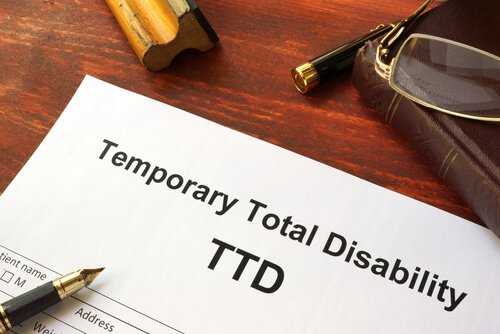
Total Disability based upon Individual Unemployability – TDIU – is an extraordinary remedy available to Veterans who do not meet the 100% disability requirement, but are otherwise unable to secure a “substantially gainful occupation.” In these instances a Veteran may be awarded TDIU and receive monthly disability compensation benefits as if rated 100%, even if he or she has not received a 100% disability rating.
Total Disability Based on Individual Unemployability (TDIU) is a VA benefit that offers monthly compensation to Veterans whose service-connected disabilities prevent them from maintaining employment.
The normal disability formula bases the dollar amount of monthly benefits on a granted percentage. This percentage is determined by an average impairment on a Veteran’s ability to work. If a veteran receives a 30% disability rating for a service-connected medical condition, the United States Department of Veterans Affairs has determined that an average vet suffering from the same medical condition would be 30% disabled. This analysis examines a broad spectrum of all Veterans. Our TDIU lawyers can explain this formula in further detail.
TDIU bases monthly compensation on a Veteran’s ability or lack thereof to work. To understand it another way, TDIU is an acknowledgment by the VA that even though a Veteran isn’t entitled to a 100% disability rating, there are subjective reasons unique to his or her situation allowing the VA to assign a 100% disability rating. The VA focuses on the Veteran as an individual, and not on how his or her medical condition measures up against an average composite of all other Veterans.
In order to qualify for TDIU VA benefits, a Veteran must meet two threshold requirements:
If both of your answers to these questions are yes, you are entitled for TDIU consideration.
If TDIU is awarded, it may only be temporary. This depends on a number of factors.
Claims for TDIU are judged on a case by case basis. Each Veteran’s life is remarkably different. Accordingly, the awards are just as unique. They are entirely fact-specific.
Occasional lapses in employment due to incapacity caused by the disability/disabilities often is not sufficient to trigger TDIU consideration. The VA examines the Veteran’s employment history, current employment status, and annual income from work among a host of other things.
The primary focus for determining an award of TDIU is whether a Veteran can “secure a substantial gainful occupation.”
As a backdrop the VA reviews a Veteran’s earnings, his or her type of job skills, and the area in which he or she lives. The VA then compares those earnings to the earnings of a person likewise situated who does not suffer from the Veteran’s disability/disabilities.
Marginal employment, normally defined as a job which generates an income less than the poverty threshold as defined by the Census Bureau, is not considered “substantial gainful employment.” Accordingly, the Veteran does not have to prove he is 100% unemployable. Establishing a Veteran earns less than the poverty level is a significant step in establishing the first requirement (However, in some instances, such a when a Veteran works for a family business or sheltered workshop – known as a “protected environment” – the Veteran may earn more than the poverty threshold amount and still qualify for TDIU consideration).
In some instances a Veteran may meet the first requirement (lacking substantial gainful employment), but fail to meet the second requirement (a single 60% disability rating or 70% with multiple disabilities with one exceeding 40%). In such an instance, the Veteran may still be entitled to consideration for TDIU. This is based on the VA’s policy of rating all Veterans as 100% disabled who are unemployable because of their service-connected medical disabilities regardless of the percentage awarded.
Normally, the VA must find the specific case presents such an exceptional or unusual disability picture the regular disability scheduler standards are not practical. Normally, the Veteran’s disabilities markedly interfere with employment or the Veteran’s frequent hospitalizations make employment not workable. In such extremely rare instances, the claim is referred to the Secretary’s designated official to consider the claim on a special, unique basis.
Although the focus is on the unique characteristics of a Veteran’s situation, things which might seem reasonable to be considered are expressly not considered. These include the Veteran’s age and non-service-connected disabilities.
A Veteran’s age and his non-service connected disabilities obviously impact his ability to have “substantial gainful occupation”. However, the VA will not consider these in its determination and the veteran’s advocate must be able to compartmentalize a Veteran’s medical conditions in order to persuade the VA of his or her entitlement to TDIU. The VA will have to expressly explain in its decision a differentiation between the service-connected and non-service-connected disabilities.
The VA will consider a Veteran’s level of education and occupational history. A well-educated Veteran who was recently employed cannot be denied TDIU simply because he or she is well-educated and recently employed. The focus should be on the present status of the Veteran’s predicament.
Additionally, the VA must examine the Veteran’s Social Security Administration disability benefits records (if any are available). The determination of disability for gainful employment by the Social Security Administration is relevant to the award of TDIU.
As in every case, the benefit of the doubt always leans in favor of the Veteran’s claim. This is equally applicable to distinguishing between the effects of service-connected and non-service connected disabilities.
After honorably serving your country in the military, you should not be left scrambling just to get by due to a service-connected disability. Let the Berry Law help you file for the benefits that you lawfully deserve. For a free consultation, please call (888) 883-2483 or contact us online.
Our monthly newsletter features about important and up-to-date veterans' law news, keeping you informed about the changes that matter.